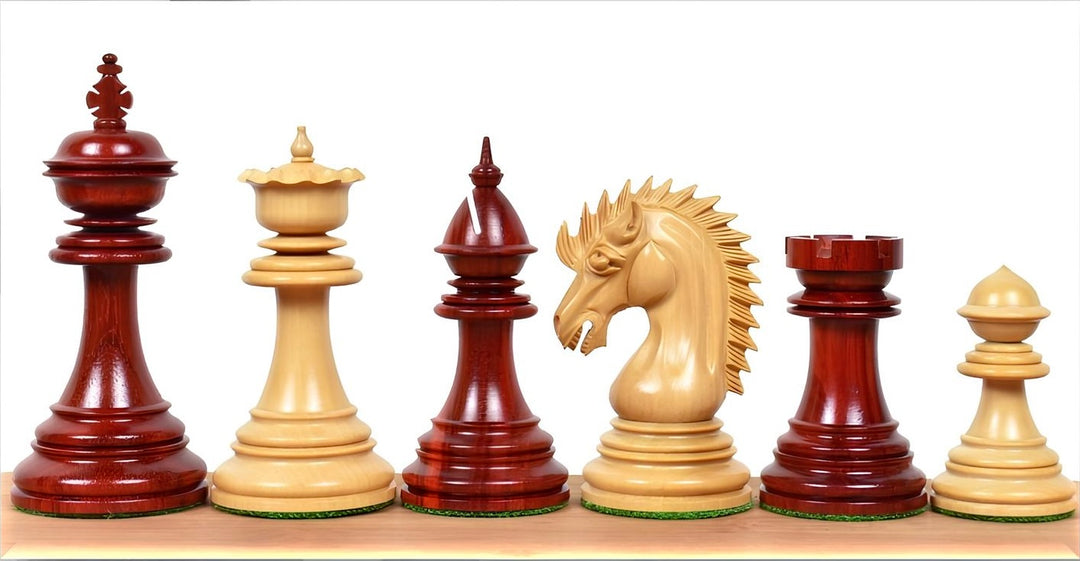Introduction to Chess Sets
Chess, a game of strategic skill and artistic merit, has captivated minds for centuries. More than just a game, chess is a fusion of art, culture, and cognition, which is profoundly reflected in the variety and design of chess sets around the world. Chess sets are not only tools for a game but serve as decorative pieces and a form of personal or cultural expression.
Historical Evolution of Chess Sets
The history of chess sets is as rich and diverse as the game's own evolution. Chess originated in India during the Gupta Empire around the 6th century AD, and from there, it spread to Persia, the Arab world, and eventually across Europe. With each culture it touched, the appearance and materials of chess sets evolved significantly.
In Europe, the standardization known as the Staunton chess set came into play in 1849, designed by Nathaniel Cook and named after the chess player Howard Staunton. This design provided a practical, easily recognizable set of pieces, which was quickly adopted in official games and still remains the standard in competitive chess.
The Artistic Dimension
Aside from the standard designs, many chess sets are created purely for their artistic value. These sets transform the board and pieces into representations of historical battles, mythological figures, or abstract sculptures. Materials range from traditional woods and metals to luxury elements like gold, silver, and precious stones, or even glass and crystal.
Materials Used in Chess Sets
The choice of material in chess sets can very much alter their look, feel, and artistic value. Some of the most common materials include:
- Wood: A traditional choice offering warmth and a classic look, with woods like rosewood, mahogany, and walnut being popular among craftsmen.
- Metal: Often used for more modern or thematic sets, including pewter, brass, and bronze, which add substantial weight and a distinctive feel to the pieces.
- Plastic: A practical and affordable option, plastic sets are mainly used for casual play and in schools.
- Stone: Marble and alabaster are prized for their luxurious quality and aesthetic appeal, creating both decorative and durable sets.
Notable Artistic Chess Sets
Over the years, several chess sets have been recognized not just for their functionality but as works of art that could stand alone in galleries.
The Isle of Lewis Chess Set
One of the most famous historical sets is the Isle of Lewis set, discovered in Scotland and dating back to the 12th century. Carved from walrus ivory and whales' teeth, these pieces feature distinct Norse symbolism with a rugged, almost primitive charm.
The Man Ray Chess Set
Created by the modernist artist Man Ray, this set transforms abstract geometric shapes into classic chess pieces, reflecting the Bauhaus school of design. It’s a stark departure from traditional models and is a collector’s item in the world of art and chess.
The Salvador Dalí Chess Set
Inspired by his own surrealistic visions, Salvador Dalí crafted a set wherein the pieces mimic fingers and thumbs, painted silver and gold. This set resides in the Dalí Museum in St. Petersburg, Florida, showcasing his unique approach to blending surrealism with traditional gameplay.
The Silver Jubilee Chess Set by Geoffrey Parker
Known for luxury games, Geoffrey Parker created the Silver Jubilee set featuring sterling silver and gold-plated set pieces. This limited-edition set is an example of extravagant materials brought into the craft of chess set design.
Choosing a Chess Set for You
When selecting a chess set, it’s important to consider both the artistic appeal and practical functionality. For casual players, the set should be durable and clearly distinguishable, while collectors might look for unique materials and expert craftsmanship. Consider the following:
- Purpose: Determine whether the set is for daily use, display, or collection.
- Material: Decide on a material based on aesthetics, longevity, and the feel you prefer in hand.
- Design: Look for a design that appeals to your taste, whether it’s modern, classical, thematic, or artistic.
- Budget: Chess sets can range from affordable to highly luxurious, so set a budget according to your needs.
Conclusion
Chess sets are more than just pieces on a board; they are a nexus of art and intelligence, strategy, and design. Whether used for play or as a centrepiece, a chess set reflects the personal style and intellectual prowess of its owner. In the world of chess, the game itself is an art form, celebrated and immortalized through these beautiful and diverse designs.
Understanding the profound connection between the aesthetic value and functionality of chess sets enriches the playing experience and appreciation of chess as a game of both intellectual depth and artistic integrity.
Explore our large collection of beautiful chess sets!

























































Leave a comment